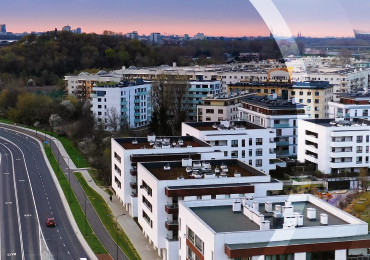Introduction
The global shift towards a low-carbon economy will leave no area of economic and social life untouched. As the transition to net zero accelerates, it will result in major structural changes, both within individual economies and across international value chains. These changes will touch people’s lives in myriad ways – from requiring job changes and retraining to necessitating the reduction of households’ carbon footprints through insulation and the installation of meters. Thus, the green transition will consist of many different transitions, both big and small.

Foreword
The global shift towards a low-carbon economy will leave no area of economic and social life untouched. As the transition to net zero accelerates, it will result in major structural changes, both within individual economies and across international value chains. These changes will touch people’s lives in myriad ways – from requiring job changes and retraining to necessitating the reduction of households’ carbon footprints through insulation and the installation of meters. Thus, the green transition will consist of many different transitions, both big and small.
Starting with big transitions taking place at the global level, this report shows that addressing the climate emergency is dependent on having reliable and secure access to certain raw materials. Governments around the world are now waking up to the urgent need to secure a supply of such critical minerals, whose production tends to be heavily concentrated in a handful of countries. As documented in the report, there are significant deposits of critical raw materials in several economies in the EBRD regions, but setting up new mines and refining facilities will take time and significant investment. This scramble for critical minerals comes at a time of geopolitical tension amid the “return of history”, with trade policy being driven by geopolitics rather than economics. Further fragmentation of the global economy and the resulting restrictions on exports could thwart countries’ efforts to secure a stable supply of these inputs.
Individual citizens and their interests will be at the very heart of the green transition, and this report examines two aspects of people’s lives that will take centre stage in the adjustment process: jobs and homes. The current growth in green jobs forms part of a historic reshaping of the world of work, driven by new technologies and accelerated by the Covid-19 pandemic. As the report shows, although green jobs tend to be better paid, the transition to such jobs is proving to be slow on account of the time and resources needed to acquire new skills. This aspect of the green transition will affect different localities in different ways, potentially upending local labour markets in places that specialise in mining and emission-intensive manufacturing. The report emphasises that green innovation holds great promise, but can also lead to the displacement of jobs – a phenomenon that particularly affects men and less-educated workers.
As regards homes, residential buildings in many EBRD economies continue to have a significant environmental footprint, with the residential sector accounting for more than a quarter of total emissions and energy use across the EBRD regions as a whole. In addition to phasing out coal, there is also scope for significant reductions in emissions through improvements to insulation and the metering of energy consumption.
The change and upheaval that stems from these trends will affect people’s lives for the foreseeable future. Policymakers will need to establish a deep understanding of those effects in order to plan future stages of the green transition, as individual attitudes will both shape and be shaped by that transition process. Using rich data that have recently been collected by the EBRD and the World Bank via the Life in Transition Survey, this report paints a detailed picture of people’s outlook on life and economic transformation. The good news is that people’s lives are becoming happier, wealthier and healthier. Gone is the happiness gap between the EBRD regions and the G7 countries that was documented in the first couple of decades of the transition process. The bad news is that, while about three-quarters of people living in the EBRD regions acknowledge the existence of climate change and its consequences, many of them are not yet prepared to pay more tax in order to support environmental policies. The success of the green transition will depend on winning their hearts and minds as we continue our journey towards a cleaner future. If there is one thing we have learned from 30 years of transition in the EBRD regions, it is that reforms will not last unless they have broad-based support.

Beata Javorcik
Chief Economist, EBRD
Highlights
EVENTS
WHERE WE WORK
The EBRD is investing in changing people’s lives and environments across a region that stretches from central Europe to central Asia, the Western Balkans and the southern and eastern Mediterranean.









